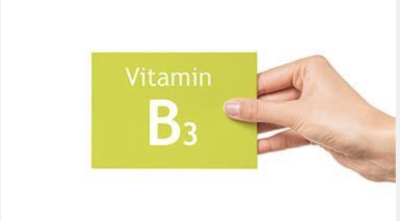Most Animals Can Harbor But Are Not Sickened By Coronavirus Because They Internally Produce Vitamin C 24/7
by Bill Sardi, Lew Rockwell:

The animal kingdom is largely immune from the ravages of coronaviruses, even the deadly one that is now infecting human populations. There is strong circumstantial as well as scientific evidence that wild mammals exhibit immunity from coronaviruses and viruses in general because most animals internally produce vitamin C.
For example, the vast majority of civets (small cat-like animals) both in the wild and on farms are free of coronavirus infection, though they are carriers of the virus.
While humans around the globe wonder if the human species is about to experience a massive culling by an unstoppable and newly mutated coronavirus for which no one has antibodies against (except individuals who have already been infected), a striking fact is that wild and domesticated animals (rodents, poultry, dogs, cats, pigs) harbor this respiratory coronavirus but don’t develop life-threatening pneumonia and succumb to infection.
Great apes who have lost ability to secrete vitamin C from their liver are vulnerable to being killed off by viruses. African Green Monkeys exhibit a range of symptoms including death when exposed to coronavirus. But some monkeys exposed to coronavirus exhibit no symptoms.
A contradiction in the animal lab
A seeming contradiction to the idea that vitamin C protects from coronavirus infection is observed in the animal lab. Due to a genetic flaw that is also universal in humans, non-human primate monkeys don’t internally produce vitamin C yet don’t exhibit severe clinical disease and mortality as observed in coronavirus-infected humans.
But according to the Merck Manual, laboratory monkeys are fed a diet strongly fortified with vitamins C (200 milligrams per kilogram of dry matter). Vitamin C food fortification may avert coronavirus infection and make up a genetic flaw.
For comparison, humans have the same genetic flaw and consume ~110 milligrams of dietary vitamin C daily. And even those people who use vitamin C supplements (usually 500-1000 mg pills) cannot match the continuous secretion of vitamin C that humans once produced prior to a universal gene mutation that occurred long ago in human history.
How much vitamin C?
In the 1970s biochemist Irwin Stone, using rodents as a model, estimated humans would need to consume 1800-4000 milligrams of supplemental vitamin C per day to approximate what our species once produced internally.
But even that amount of supplemental vitamin C could not possibly maintain adequate vitamin C levels throughout the day and night. Supplemental vitamin C is rapidly excreted in urine (within 30 minutes) leading to the criticism C-pills just create expensive urine.
Greater amounts of supplemental vitamin C are excreted as dosage increases. Only about 80% (315 mg) of a 500-milligram vitamin C pill is absorbed and another 241 milligrams is excreted within 120-180 minutes, leaving only 74 milligrams in circulation.
Vitamin C as stress hormone
Another factor is that vitamin C is a stress hormone that is internally produced in animals on an as-needed basis in response to biological or emotional stress. Humans would have to habitually take vitamin C pills throughout the day to approximate what once was secreted continually from the liver. A missing enzyme (gulonolactone oxidase) blocks the conversion of sugar to vitamin C in humans.
In most mammals, except for primate monkeys, guinea pigs, and fruit-eating bats that have the same genetic flaw as humans, sugar is enzymatically converted to ascorbate (vitamin C) continuously. Given that the liver incessantly produces glucose and the diet provides sucrose and fructose, there is always enough sugar to enzymatically convert to vitamin C. Since biological or physical stress releases sugar stores, more vitamin C is internally produced in vitamin C-secreting animals under stress.
Loading...



